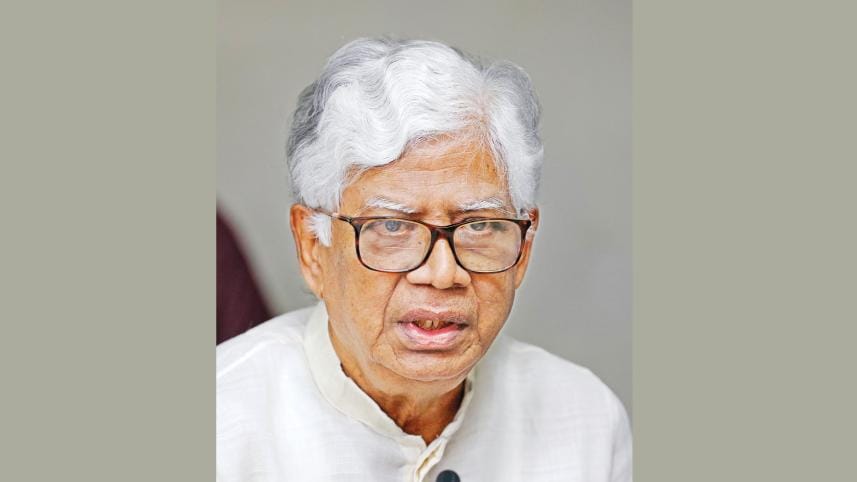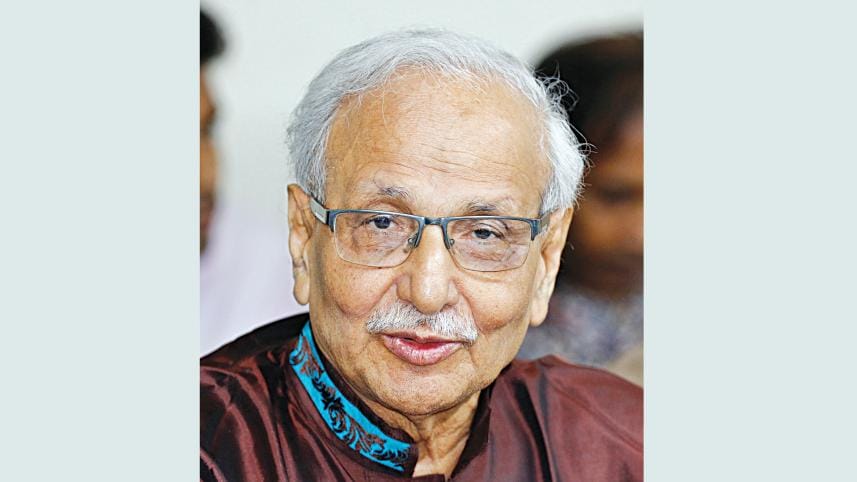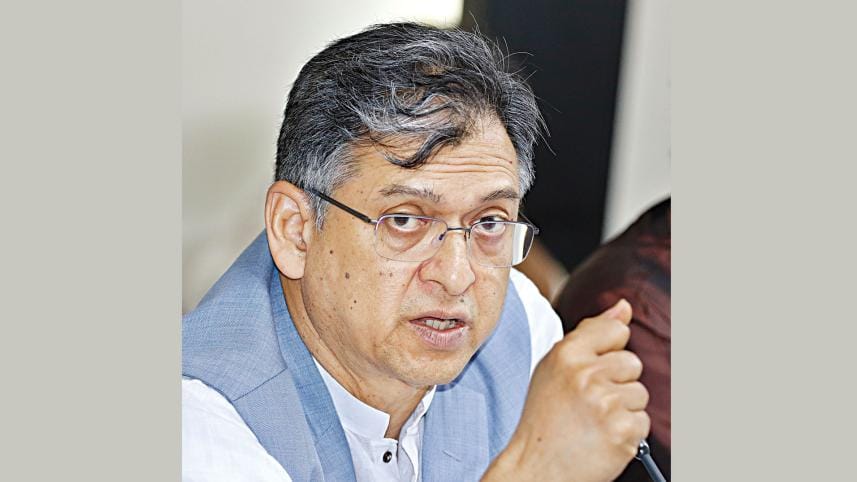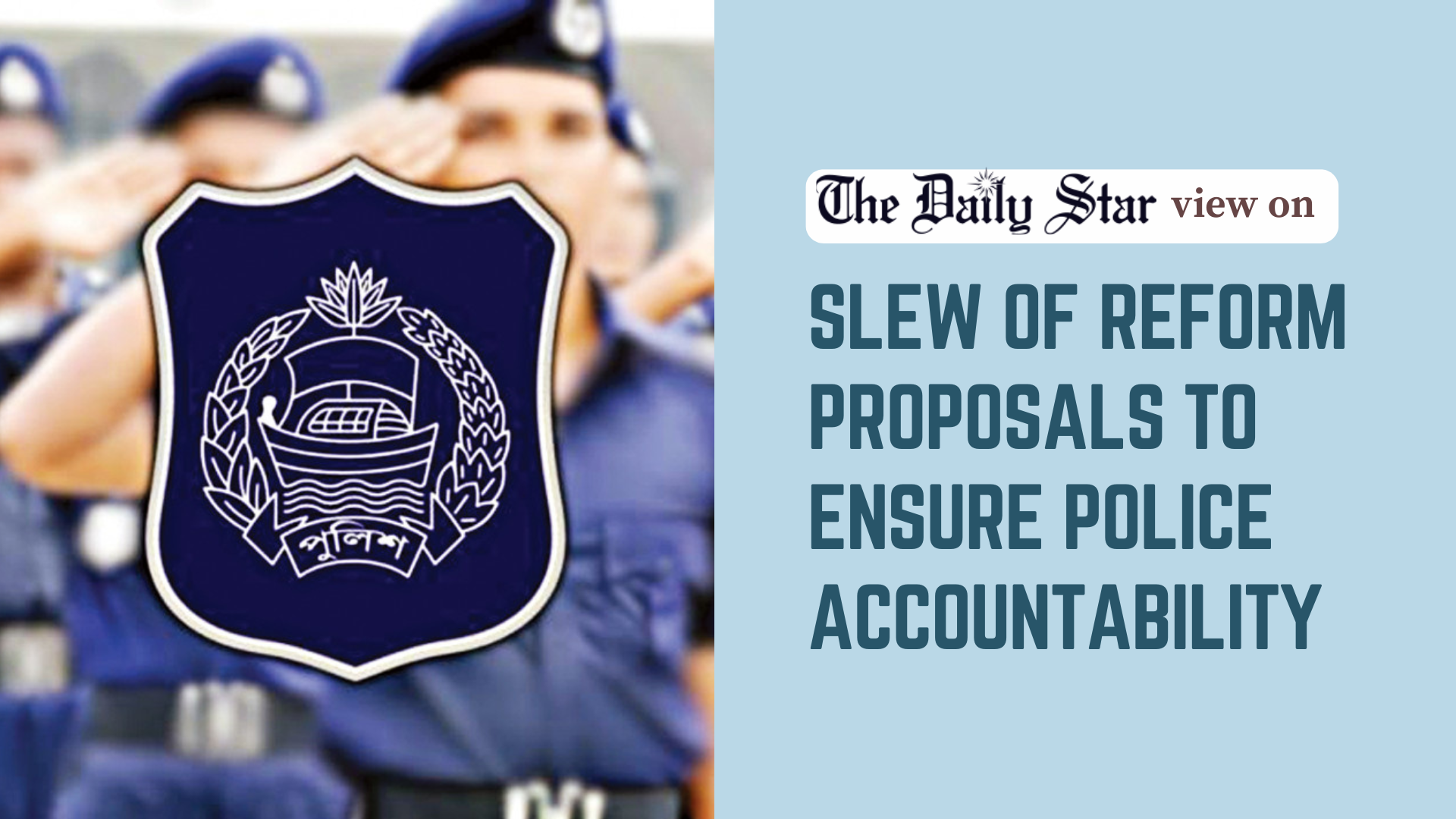Police reform hinges on independent commission

Police reform means putting safeguards in place so that the force can never again be abused for political gains, said lawyers, politicians, academics, and current and former police officials.
The only way forward to make the changes lasting is to form an independent police commission, they observed at a roundtable organised by The Daily Star at its office yesterday.
"No political party can dictate against whom I can file a case or submit a charge sheet. This is the least that must be ensured," said Baharul Alam, inspector general of police.
BNP Standing Committee member Salahuddin Ahmed admitted that parties used the police for political gains.
"We all have, at some point in time, used the police -- either to stay in power or to return to power. The police also allowed themselves to be used. Every government has tried to keep them happy, turning them into kingmakers during elections," he added.

"If the police's investigative power isn't separated from the government's executive authority, you'll see someone with 20 cases be jailed -- only for all those cases to be dismissed when power changes."
The police are still pandering to the powers of the day, Salahuddin said. "The filing of retaliatory cases en masse and mob violence represent this government's failure. The police could have refused to accept such cases.
"For example, when I was forcibly disappeared, my wife was not even allowed to file a general diary. This shows that the police do, in fact, have the capacity to refuse cases."
Justice Farid Ahmed, a former High Court judge, said, "Investigators take so much time because police officers operate on orders from political parties. They intentionally delay the submission of investigation reports."

"All political parties agreed to have an independent police commission during the Consensus Commission meetings. However, the Home Ministry opposed it."
At the roundtable, titled "Need for Police Reform: Civil Society Perspective", the speakers called for a new ordinance befitting a modern-day police force, replacing the colonial-era laws still governing the police.
They debated about what a truly independent police commission looks like.
Earlier, on September 11, the interim government directed the law ministry to draft laws for the establishment of two commissions within the police: the Independent Investigation Services, headed by the law adviser, and the Internal Complaints Commission, headed by the home adviser.
TIB Executive Director Iftekharuzzaman questioned this move. "So, the government retains the authority and control over the commissions," he said.

"We have all, at some point, used the police -- either to stay in power or to return to power. The police also allowed themselves to be used."
A member of the National Consensus Commission, which is holding talks with parties on key reforms, Iftekharuzzaman lamented that recommendations of the Police Reform Commission were never properly discussed. "No recommendations, no reports -- nothing was debated. There was resistance. This needs research."
He criticised the reform commission's composition as well, saying eight of the 11 members were bureaucrats, including five in service, and two police officers. "Full of conflict of interest," he said.

"They [police]were not only used; they allowed themselves to be used. In doing so, they gained advantages, enjoyed power, and violated citizens' rights."
Mohammed Iqbal, a member of the reform commission and former director general of the Department of Narcotics Control, said no conclusive recommendation on the formation of an independent police commission was made because of debate over the issue of its oversight.
"Some interpreted it [independence] as a commission that is out of the government executive branch. Fundamentally we agree that there should be an independent mechanism that will oversee police activities and how the state manages this institution. However, we cannot have a fully independent police commission outside of ministerial oversight," he said.
Former IGP Nurul Huda countered, "If police's investigative power cannot be separated from the government's executive authority, then you will see that one person faces 20 cases and ends up in jail, and once power changes, all those cases get dismissed."

"No political party should have any influence over whom I can file a case against or name in a charge sheet -- this minimum freedom must be ensured."
Badiul Alam Majumder, secretary of Shushashoner Jonno Nagorik (SHUJAN) and a member of the consensus commission, noted that political parties unanimously agreed to an independent police commission.
"However, this won't be a constitutional commission. Being a constitutional body does not guarantee independence. This has to be created through law," he said, pointing out that the home ministry dissented on the proposal.
Former additional IGP Motiur Rahman Sheikh said pressure to serve the ruling party hinders accountability and transparency. "The institutional sub-culture has been aligned with political loyalty rather than law enforcement ethics."

"Sensitive cases of gender-based violence should be investigated by a separate investigation team, equipped with the appropriate mindset and focus."
Rizwanul Islam, law professor and dean, School of Humanities and Social Sciences, North South University, said bureaucratic impact would diminish if the police could be made more independent.
The depoliticisation can be achieved by focusing on key areas like recruitment and resource allocation, said speakers.
Justice Farid added, "We have to be very serious at the recruitment level. The political allegiance of the candidate must not be made public during recruitment. Recruitments must be finished in the shortest possible time so that there is no scope to lobby on anyone's behalf."

"During my last detention in July 2024, I was forcibly disappeared for four days. They pushed me against a wall and beat me until they got tired. I had a heart attack during the first day of remand."
Rizwanul stressed that the recruitment method needs to be changed so that the constable can have some hope of climbing the ladder.
Iqbal noted accountability and entitlement in the police force exist only up to a certain level of the force. "Beyond that, there is a grey area."
He also highlighted resource shortages. "At the thana level, if a police officer finds a dead body, they must cover transport costs themselves and are reimbursed a year later. The budget must be instantly available to duty bearers."
Md Mobarak Hussain, a central committee member of Jamaat-e-Islami, narrated how he was arrested seven times, and tortured in custody.

"Police often conduct arbitrations. When people come to the station to file a case, officers decide whether the matter is suitable for arbitration."
"During my last detention in July last year, I was forcibly disappeared for four days. They pushed me against a wall and beat me until they got tired, and then they came back again. They broke my finger such that it was misshapen and bent and I had to undergo a surgery.
"After being produced at court, I was taken into remand. I had a heart attack during the first day of remand," he recalled.
Javed Rasin, senior joint convener of National Citizen Party, called for transparency in the evaluation and monitoring of performance of police officers.
"The police often conduct arbitrations. When the people come to the station to file a case, the police decide whether arbitration can be conducted," he said.
Women's rights lawyer Fahmida Akhter said survivors of gender-based violence suffer because "investigating officers do not have the necessary budget to serve survivors" and are burdened with general duties.
"There should be a separate investigation team for sensitive cases," she said.
Sibgat Ullah, an additional IGP heading the Criminal Investigation Department, said promotions depend on political subservience rather than merit.
"We have not been able to create a guideline for posting or promotion. During the July Uprising, many police officers were forced to be on duty without choice. A proper guideline could prevent this," he said.
Additional IGP Kazi Md Fazlul Karim described how the force is overstretched and resource-strapped.
Some speakers said impunity, not external stressors, fuels abuses.
"If the transgressions were only due to an external force, where is the external force now? Custodial deaths are still happening," said Supreme Court lawyer Jyotirmoy Barua.
Moderating the event, The Daily Star Editor and Publisher Mahfuz Anam said, "We want a pro-people, democratic, honest, ethos-based, rules-based police force."



 For all latest news, follow The Daily Star's Google News channel.
For all latest news, follow The Daily Star's Google News channel. 
Comments